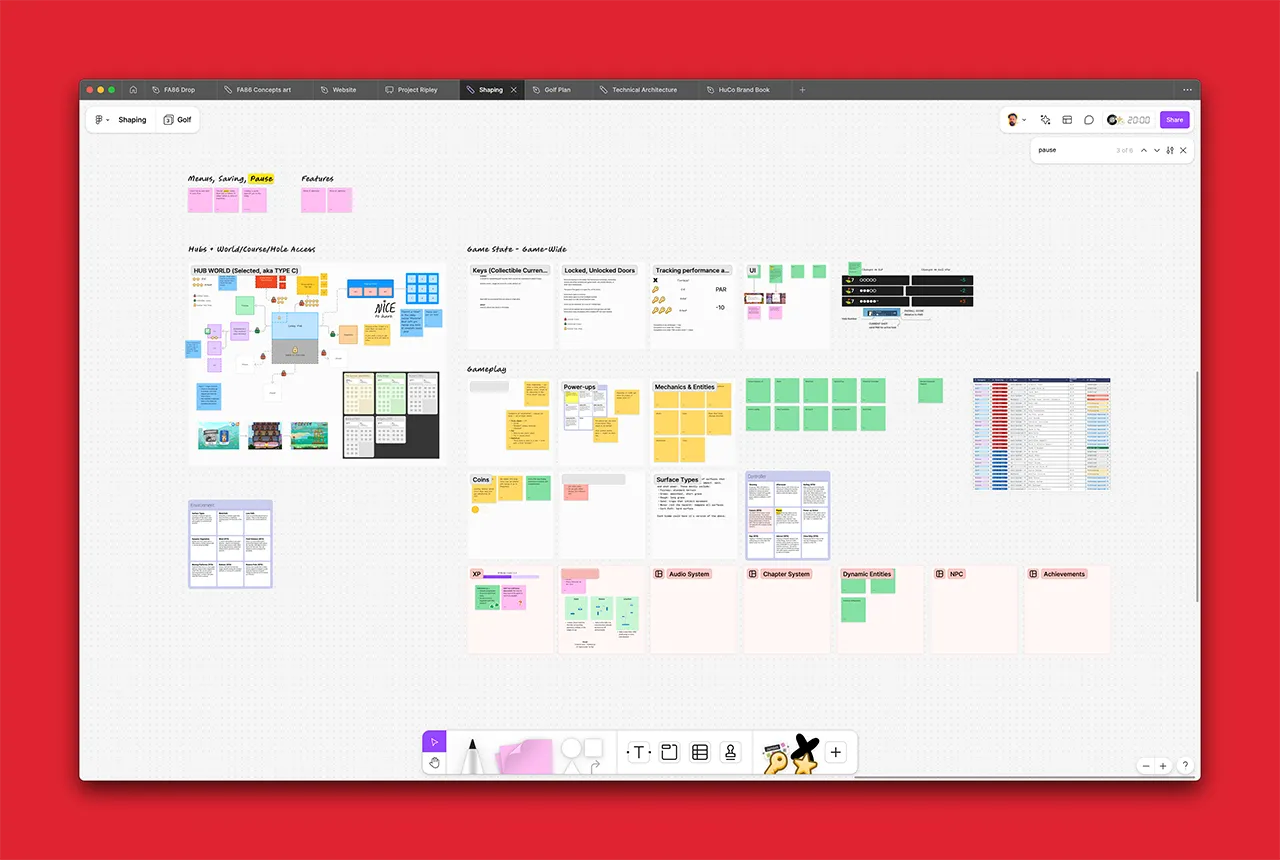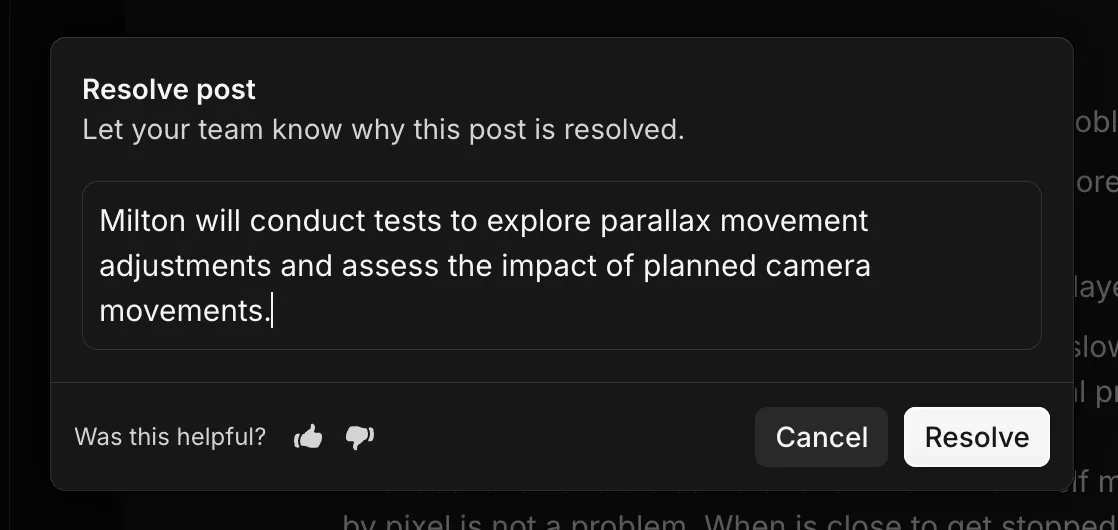This article was originally published on the Human Computer newsletter and is being shared here for the benefit of candidates that may want to learn more about how Alex and the team at Human Computer work.

Hi, Alex here. Happy Halloween. Some of you may not know this but before co-founding Human Computer I was mostly known as the Chief Design Officer of Airbnb. I lead some pretty massive teams on many very complex projects. It was a wild, educational ride.
Here's the most important thing I learned: projects rarely fail because of wrong decisions. They fail because of no decisions, or decisions that come too late.
This insight changed everything about how we're building Human Computer.
We're sharing our journey because we believe in building in public. Sometimes we'll talk about our games. Sometimes about our methods. Always keeping it helpful and fun to read — so please comment and keep us honest.
We'd love to hear what interests you. What parts of game development intrigue you? How does your team make decisions? Your questions and feedback will help shape what we share. Use the comments below or reach out on social media platforms, you’ll usually find us under @humancomputerco and we’re good at getting back to people.
The Remote Reality
Remote work has fundamentally changed how teams operate. Those spontaneous conversations that used to happen in hallways and over lunch — the ones where quick decisions got made and projects kept moving — they've disappeared. In their place? Slack channels that never end. Email chains that circle but never land. Calendars packed with meetings that should have been decisions.
I saw this evolution firsthand at my previous job. Leading distributed teams taught me what works, what doesn't, and most importantly – what could work better.
Learning from Airbnb
Airbnb was an incredible laboratory for understanding how modern teams function. I watched closely as some teams moved lightning fast while others got stuck in coordination loops. The difference often wasn't talent or effort — it was almost always about how decisions were made.
The teams that thrived had figured something out: they'd built systems for making decisions that didn't depend on everyone being in the same room at the same time. They would have engaged leaders that understood what was being built and they everyone knew what they were meant to be doing at any one time.
Building Different
When we started Human Computer in 2024, we had a unique opportunity: design our ways of working from scratch. No legacy habits to break. No "we've always done it this way" to overcome.
First order of business? Rethink everything about how we communicate and decide.
The Great Meeting Reset
We cut our meetings in half. Not because meetings are bad — they're just expensive. Each "quick sync" breaks focus. Every "status update" interrupts flow. The cost isn't just in hours lost, but in creative momentum broken.
Instead, we built better ways to move forward.
Tools Shape Decisions
At Airbnb, I watched how different tools created different behaviors. Slack's instant nature made every message feel urgent. Email threads buried key context. Meeting calendars filled faster than they could be cleared.
We needed something different. We found Campsite.
Think of it as a forum for decisions, not a firehose of chat. Each discussion stands on its own. Ideas have room to breathe. Decisions emerge naturally, visibly. The whole team sees the whole picture, whether they're in San Francisco or Spain.

Our Decision Stack
Like any craftspeople, we're particular about our tools:
- Campsite: Is where decisions are made or tracks decisions made in other forums like calls or in person meetings. It’s also where we chat about ideas, or update the team about things happening around the company. More thoughts on Campsite below.
- Linear: Tracks active work. This ticketing system was built by someone that used to be on my team at Airbnb and really fixes a lot of the issues with other ticketing software like JIRA.
- Figma: the tool where we visually brainstorm. It allows us to collaborate seeing each other’s cursors. Adding and commenting on stuff as we discuss. It is far more valuable than just staring at a grid. One of our key processes is what is “shaping” — which is when a small group of us gather’s around a single whiteboard and shapes features and concept into something that can be built. Being visual is super important in game design so this always beats a bullet list in a document.
- Google Workspace: for everything else.
Simple tools. Clear purposes. No digital clutter collecting dust. As you can see no email, Slack or other bloated enterprise software in sight.
Thoughts on Campsite
Campsite is a relatively new tool and probably the biggest change to how we worked. It was also the hardest habit to adjust to. People were used to chatting on Slack or Discord to make all sorts of decisions and share all sorts of updates.
Think about the last time you tried to follow an important discussion in Slack. Messages flying past. Multiple conversations interweaving. Important context disappearing into the scroll. Chat tools create a constant sense of urgency – every message feeling like it needs an immediate response. They fragment attention and make deep work nearly impossible.

If Slack works like a chatroom, Campsite works like a forum. Forums work differently. On Campsite, each discussion stands alone, like its own mini-document. People take time to write thoughtful responses rather than rapid-fire reactions. There's no pressure to immediately reply – you can catch up on discussions when you're ready to focus on them.
Team members can easily follow decisions that affect them while staying away from conversations that don't. The whole history of a decision lives in one place, easily referenced by anyone who needs context later. It's the difference between a rushed conversation in a crowded room and a thoughtful discussion in a dedicated space. When every message doesn't feel urgent, the truly urgent things can actually stand out.
Faces Optional
When we do meet as a big group, cameras stay off by default. It's not about hiding — it's about focusing. We share screens, sketch together, build in real time. Ideas flow better when we're not all performing for the camera. People do turn on their cameras but we often rather be sharing a Figjam whiteboard than looking at a grid of faces.
Real collaboration shows up in the work, not in the Zoom grid.
Time Zones as an Advantage
At Airbnb, I saw how global teams could be a superpower when structured right. Great work happens when people work at their best hours, not when the calendar demands it. Our team spans continents. Ideas evolve around the clock. Decisions get made while others sleep.
That's not just async work – that's work that works.
The Results
This isn't just theory. It's practice. And it works:
- Decisions happen daily, not weekly
- Work flows without waiting
- Ideas evolve naturally
- The team stays energized
- Days end when they should
Why This Matters
The games industry is transforming. Teams are more distributed than ever. Player expectations evolve faster than traditional development cycles. The old ways of building things need to change.
Starting fresh in 2024 gives us an advantage. We're building systems for how work actually happens now, not how it worked a decade ago. Also, here’s a random screen grab from one of our shaping meetings. I love this job











